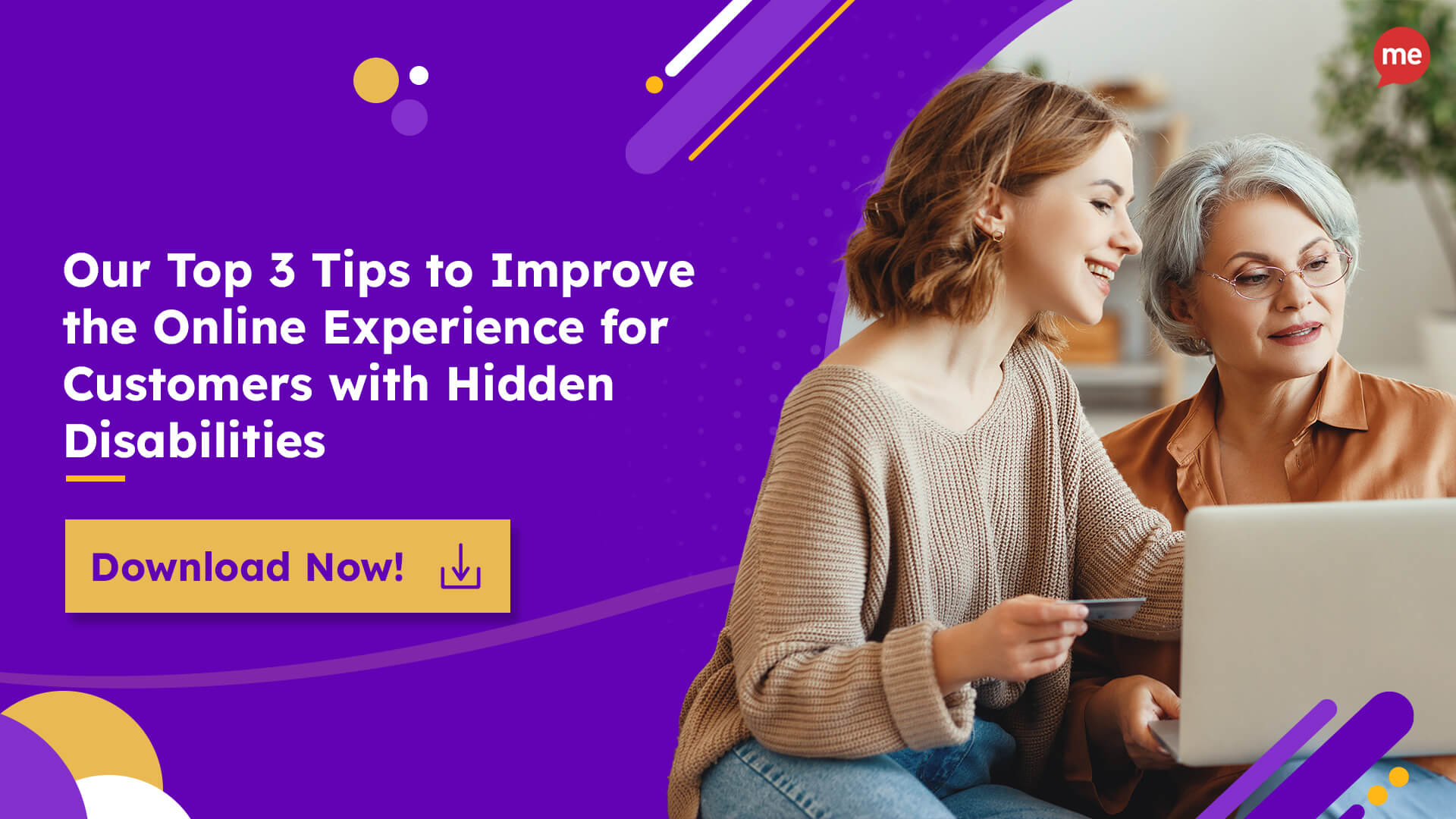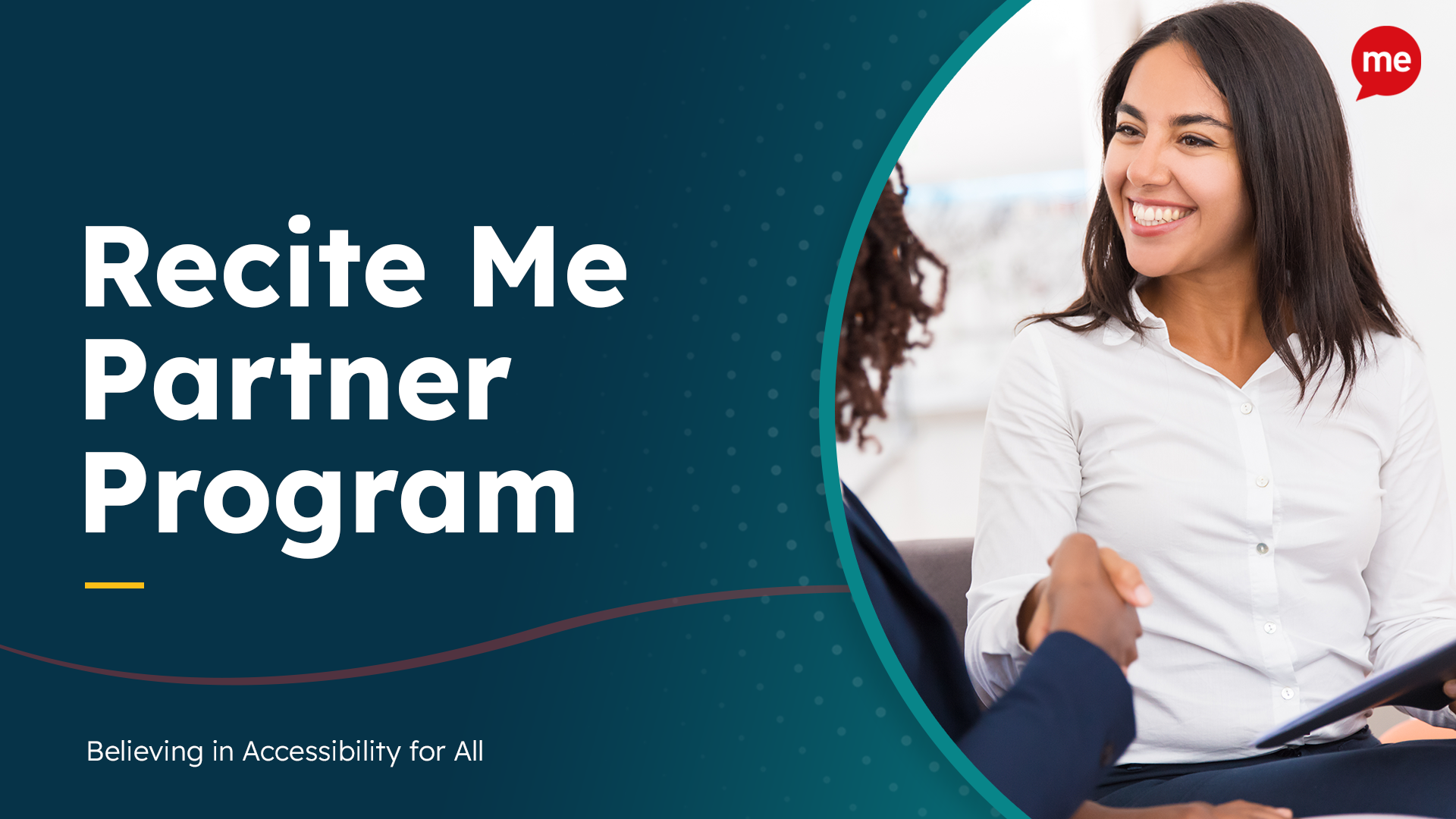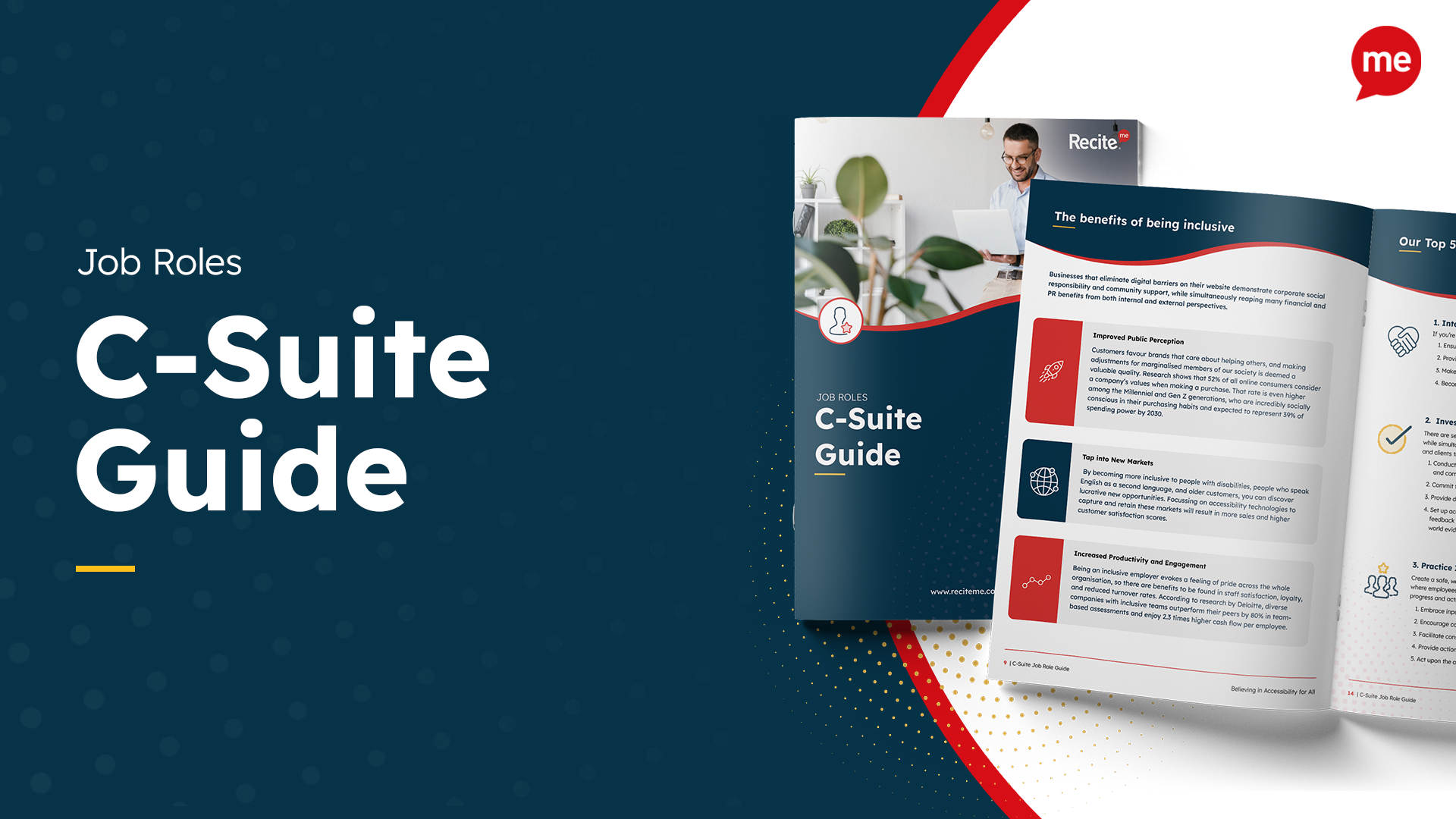Hi, I’m Ross, Founder and CEO at Recite Me.
I couldn’t be happier to announce the launch of our first ever Accessibility Awareness Week.
‘What Does Accessibility Mean to Me’ awareness week with Recite Me will be running from October 18th- 22nd, 2021. Bringing together business owners, employees, students, and industry experts, we’ll be delving into a broad range of accessibility, diversity, and inclusion topics as the week goes on.
Why? Because for all the great things we’ve achieved and the huge leaps forward in web accessibility awareness in the last decade or so, there’s still more work to be done.
We hope this week will provide a platform for us to come together with our clients and wider network to raise awareness for web accessibility and give people a voice to express their opinions and experiences.
Web Accessibility
The internet is a significant part of life. We use it to shop, pay our bills, communicate with friends and family, apply for jobs, book trips, and learn about local services. At 98%, the UK has one of the highest internet penetration rates in the world, and according to Ofcom’s 2020 report, we spend an average of 3 hours and 37 minutes online every day.
Most people take access to online information as a given. However, when content fails to meet recognised accessibility standards, many people cannot read, understand, or use the information. I know, because I’m one of them.
My Story
I’m dyslexic. I didn’t find out until after I’d graduated university, but I’d be lying if I said I’d never suspected there was something different about the way my brain worked. At school, I struggled with subjects that required lots of writing – and reading aloud in front of the class terrified me. It took me much longer than my classmates to figure out word and sentence order. And I could never seem to improve, no matter how hard I tried. Which, for someone as competitive and driven as me, was frustrating.
One day after I graduated, I was giving a presentation at work, and a colleague commented that I was displaying all the signs of dyslexia. So I got tested, and my diagnosis was confirmed. It was a relief to finally have an explanation, and I was provided with software support. But, as it only worked on one computer, it was pretty limiting. I knew there had to be a better way, and as smartphones and tablets became more prevalent, having assistive technology on just one device was never going to be practical.
That’s the reason I founded Recite me. To give people like me more options and for the internet to be a more inclusive place. And to help businesses understand accessibility requirements and accessibility guidelines so they can support their employees as much as possible.
Web Accessibility Guidelines
In the last decade, there’s been a collective leap forward in the way people view diversity and inclusion. Every year, more businesses see inclusion as a positive change, and most reputable companies have accessibility statements on their website. Organisations are also trying harder to meet The Web Content Accessibility Guidelines (WCAG), which is great to see.
WCAG is the gold standard when it comes to web accessibility. While not an official requirement for private enterprises (yet!), government and public sector bodies are expected by law to meet Level AA. And now, with the newest WCAG update due for release in 2022, it’s more important than ever that businesses stay ahead of the curve and actively work towards inclusivity.
So…What Does Accessibility Mean to You?
We hope this week will help us all develop a much deeper understanding of what accessibility means to all of us.
To me, web accessibility opens up the world. Remember the days before we carried the internet around in our pockets? Tasks like renewing a phone contract or switching to a new energy supplier were time-consuming. They meant hours on the phone or a trip down to a physical store to speak to a representative. Now we can accomplish those tasks in seconds within just a few clicks. Well, many people can. The only way everyone can do this is if websites and apps are accessible. That’s why web accessibility is so important to me. Nobody should be at a financial, social, or educational disadvantage just because they read and understand information differently.
Here’s a few insights into what accessibility means to other people.
The Customer Service Expert’s Perspective
To Caroline Wells, CEO of Different Petal, accessibility means treating each customer as an individual with different access requirements, rather than seeing the entire customer base as one entity.
“The flexibility needs to be there for customers to communicate in their preferred way. Businesses should be empowering customers by giving them choice, rather than making them ask for alternatives or work harder to get responses. “
The Diversity and Inclusion Professional’s Perspective
Alex Greenwood, Head of People and Culture at Derwent fm, on what accessibility means to her as a human resources specialist.
“While we must always keep our business objective in mind, we must also create a culture where colleagues feel truly included. Accessibility undoubtedly plays a role in this, and a skilled and knowledgeable HR team within diversity and inclusion at its core is essential to support the overall business plan”.
The Client Perspective
Vijay Matthew of Howlround Theatre Commons on the importance of true inclusion, rather than compliance box-checking.
“Our biggest lesson was learning that simply complying with technical standards is not the same thing as true inclusion. We can’t just check the box of compliance and think that the work is done. It is quite possible to make a website that technically passes all the accessibility tests, but that still is terribly difficult for a person to use.”
The End-User Perspective
Maria, a Sefton Council Resident, explains why web accessibility and access to assistive software is so important to her.
“I have Autism and Dyslexia, and without accessible websites or assistive technology, I can’t access or understand the information I need to stay independent. Being able to make individual changes on the council website and use tools like the ruler and screen reader have been life-changing.
Accessibility Best Practices
Being accessible means making reasonable adjustments and removing online barriers so that everyone can read and use the information on your website in the same way. Here is a list of steps to work through.
Make sure your website build is accessible. Good web developers can help you adapt your site by incorporating best practices for accessibility.
Familiarise yourself with the most up-to-date Web Content Accessibility Guidelines (WCAG), and aim for compliance level AA.
Gather employee feedback regularly and make sure that employees with disabilities have a say in decision-making processes.
Develop an inclusive recruitment process.
Give clear direction about how you want your customers to communicate with you, and provide online customer service portals that account for a wide range of users and their varied needs and preferences.
Use assistive technology like the Recite Me toolbar to bridge the gap between accessibility and usability, creating an inclusive online experience for everyone.
Get Involved
What does accessibility mean to you? We hope you’ll all join us this week and get involved to let us know!
It’s important that organisations reach out to their employees and discover how people feel about accessibility. Giving everyone a voice to share their experiences and knowledge will bring the workplace together, empower individuals, and improve inclusion.
You can download your resource pack, including blogs, social media posts, graphics, email templates, logos and more on our Awareness Week landing page. Alternatively, if you want to make your brand more accessible, then you can try out our website accessibility scanner.


